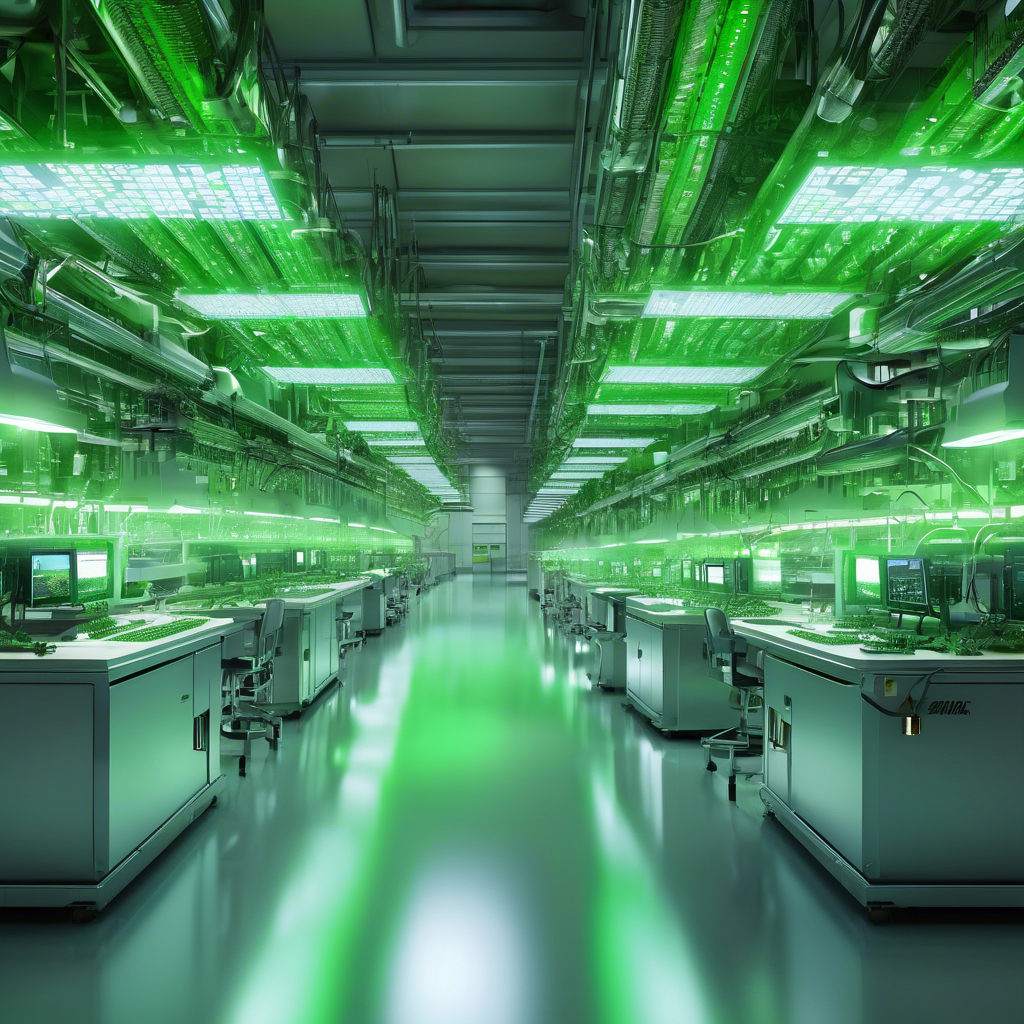Nvidia Earnings Highlight AI Industry’s Growth Amid Environmental Concerns

The AI gold rush is in full swing, but the industry’s multibillion-dollar profits come with a significant environmental price. AI favorite Nvidia (NVDA) is set to report earnings after the market closes on Wednesday, and the results could influence the next major move for AI-related stocks. Wall Street analysts forecast another strong quarter of earnings growth, fueled by rising demand from companies rapidly expanding AI infrastructure. According to Yahoo Finance data, about 87% of analysts covering Nvidia rate it as a Strong Buy or Buy. “Nvidia is the key chip player driving the AI Revolution, ” Wedbush tech analyst Dan Ives told Yahoo Finance. However, while Wall Street remains optimistic, environmental advocates are raising alarms. Nvidia designs GPUs powering everything from ChatGPT to autonomous vehicles but outsources manufacturing to foundries, or “fabs. ” The company commands roughly 80% of the AI chip market. Most AI chip production occurs in East Asia, where energy consumption is soaring. These fabs are energy-hungry and mainly rely on fossil fuels. In Taiwan, for example, over 80% of electricity still comes from coal, oil, and gas. Electricity consumption from AI chipmaking surged more than 350% between 2023 and 2024, according to a 2025 Greenpeace East Asia report. In Taiwan alone, the industry uses as much electricity as 93, 000 households, Greenpeace notes. Globally, electricity demand for AI chip production is projected to approach 40, 000 gigawatt-hours by 2030, exceeding current total electricity use in Ireland, Greenpeace adds. By 2027, AI-related power requirements could match Argentina’s current total electricity consumption, according to a recent New York Times study. Moreover, data centers packed with Nvidia’s powerful chips—which are essential for training and running large language models such as OpenAI’s (OPAI. PVT) ChatGPT or Meta’s (META) Llama—are highly energy-intensive. Alphabet (GOOG) has admitted it will likely miss climate targets due to growing AI power demands. The future of AI is being built chip by chip, but as the sector expands, so does its environmental footprint.
Keep this in mind as you review Nvidia’s financial results and listen to CEO Jensen Huang during the earnings call. The World Economic Forum (WEF) cautions that these profits come with a cost. “To reduce AI’s environmental impact, rapid data center growth must be powered by sustainable, responsible energy sources, ” the WEF stated in a white paper earlier this year. “The large financial investments required in some regions may be unaffordable for many countries. Thus, viable alternatives and strong cooperation among energy providers, environmental groups, technology companies, and governments are essential. ”
Brief news summary
The AI industry is rapidly expanding, with Nvidia dominating around 80% of the AI chip market. Nvidia’s GPUs power crucial technologies such as ChatGPT and autonomous vehicles, drawing strong investor interest due to impressive earnings. However, this growth poses serious environmental concerns. Most AI chips are manufactured in East Asia, especially Taiwan, where over 80% of electricity comes from fossil fuels like coal and gas. Energy consumption for AI chip production rose by more than 350% between 2023 and 2024, equivalent to the electricity use of tens of thousands of homes. Forecasts indicate that by 2027, AI chip manufacturing energy demands could match Argentina’s current consumption and surpass Ireland’s total electricity use by 2030. Additionally, AI data centers require massive energy inputs, challenging companies like Alphabet in meeting climate targets. The World Economic Forum stresses the urgent need for shifting to sustainable energy and enhancing global cooperation to reduce AI’s environmental impact. Nvidia’s financial success is thus closely linked to ecological challenges requiring immediate attention.
AI-powered Lead Generation in Social Media
and Search Engines
Let AI take control and automatically generate leads for you!

I'm your Content Manager, ready to handle your first test assignment
Learn how AI can help your business.
Let’s talk!

Ford explores decentralized legal data storage on…
Ford Motor Company, a Fortune 500 firm, has partnered with Iagon and Cloud Court to initiate a proof-of-concept (PoC) centered on decentralized legal data storage, according to an announcement dated June 18.

Pope Leo XIV Expresses AI Concerns for Children's…
Pope Leo XIV has expressed profound concerns about artificial intelligence’s (AI) effects on the intellectual, neurological, and spiritual development of children.

Deezer Implements AI Song Tags to Combat Fraud
Deezer, the major Paris-based music streaming service, is actively tackling the growing issue of AI-driven fraud on its platform.

Coinbase Seeks SEC Approval for Blockchain-Based …
Coinbase, a leading cryptocurrency exchange, is pursuing approval from the U.S. Securities and Exchange Commission (SEC) to offer "tokenized equities" to its users, as revealed by Paul Grewal, Coinbase’s Chief Legal Officer, in a Reuters interview.

CEOs Warn of AI's Impact on Corporate Workforces
The latest Axios AM newsletter covers key updates across technology, politics, and international affairs.

ZIGChain Summit 2025 Reveals Shariah RWA Platform…
The inaugural ZIGChain Summit 2025, held in Dubai, marked a significant milestone in decentralized finance, bringing together leaders from Traditional Finance (TradFi), Web2, and Web3 sectors.

Amazon CEO Warns of AI-Driven Job Reductions in C…
Amazon CEO Andy Jassy has issued a significant warning about the company’s future workforce strategy amid its growing integration of artificial intelligence (AI) across operations.

 Auto-Filling SEO Website as a Gift
Auto-Filling SEO Website as a Gift








 Auto-Filling SEO Website as a Gift
Auto-Filling SEO Website as a Gift

